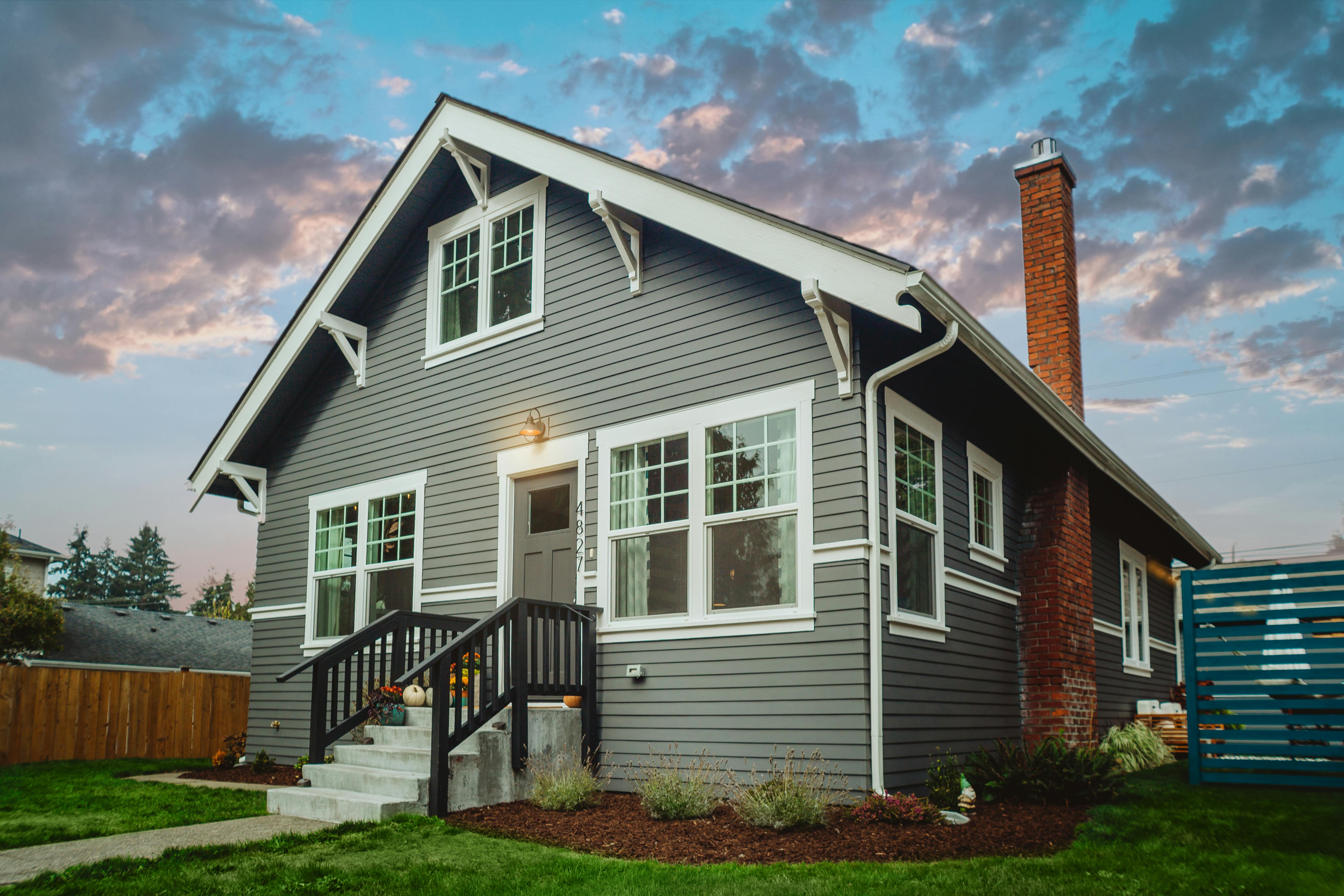There is something quite compelling about old stories, especially those that speak of enduring legacies and ancient family lines. Many folks, it seems, really want to know if the grand narratives we hear, particularly those from sacred texts, hold up to closer inspection. It's almost as if we're all looking for a solid foundation, something that feels genuinely rooted in history, much like finding a place with a sturdy stone fireplace in the main living area, giving a sense of lasting warmth and comfort. We often ask ourselves if these accounts are just tales, or if there's a real, tangible truth woven into their fabric, providing a kind of steady heat for our thoughts and beliefs.
This deep curiosity often leads us to explore specific historical claims found within ancient writings. One such claim, very often discussed, concerns the "House of David" – a royal lineage, a family line that played a truly significant role in the story of an entire people. People wonder, quite a bit, whether the descriptions of this particular "house," its rise and its lasting presence, are truly faithful to what the Bible tells us. It's a bit like wondering if that old joint, built around 1773, with its single chimney opening, truly stood the test of time, or if it's just a faded memory.
So, what we are aiming to do here is take a careful look at the evidence, both from the biblical record and from other historical findings, to see just how well the story of the House of David aligns with what we know. We want to see if this ancient family, this royal succession, truly reflects the picture painted in those old, sacred books. It’s a bit like checking if your stove is burning like it should, or if you're getting smoke inside the house; we want to ensure everything fits together properly, giving us a clear and accurate view.
- Jenny 69 Onlyfans
- What Is Hannity Salary
- Actors With Long Black Hair
- Francesca Farago Fiance
- Marathon World Record Under 2 Hours
Table of Contents
- What is the Biblical Foundation of the House of David?
- How does ancient evidence support the House of David?
- Did the House of David face challenges, like a drafty old house?
- What was the "smoke" in the House of David's history?
- Is the promise to the House of David a lasting warmth?
- How does the "House of David" connect to future hopes?
- What practical lessons can we gather from the House of David?
- Exploring the lasting legacy of the House of David, accurate to the bible.
What is the Biblical Foundation of the House of David?
The story of the House of David, accurate to the Bible, begins with a humble shepherd boy, David, who rises to become the king of Israel. His anointing, described in the First Book of Samuel, marks the start of a very special relationship between God and this particular family line. The writings tell us that David was chosen, not because of his outward appearance or his family's standing, but because of his heart, which, in a way, was ready for a big task. This choice set a precedent, a sort of blueprint, for how this royal family would be established.
After David establishes his rule, a truly significant promise is made to him by God through the prophet Nathan. This promise, found in 2 Samuel chapter 7, states that David's "house" and his "kingdom" will endure forever. It’s a bit like someone promising that a house, once built, will stand firm through all seasons, always providing shelter. This isn't just about a physical structure; it’s about a continuing lineage, a royal succession that will not end. This particular promise forms the very bedrock of the biblical understanding of the House of David. It suggests a warmth that will keep on giving, much like a good coal bed in a stove that just keeps cruising.
So, the biblical foundation of the House of David is rooted in divine selection and a lasting covenant. This covenant, or solemn agreement, is what gives the House of David its unique standing within the broader narrative of the Bible. It’s the very reason why, throughout the Old Testament, there is a consistent looking back to David and his descendants as the rightful rulers, and a looking forward to a future king from this same line. It's like having a wood furnace that's meant to heat the whole house, a primary source of warmth and direction, if you will.
- Highest Paid Plastic Surgeon In Los Angeles
- Wolverines Claws
- John Reed Discount
- Whisper Challenge Sentences Funny
- Thin Haircuts Male
How does ancient evidence support the House of David?
Beyond the pages of the Bible, there's actually some very interesting external evidence that speaks to the historical reality of the House of David. For many years, some scholars wondered if King David himself, or his royal family, was purely a legendary figure. Then, a truly remarkable discovery came to light. It was a stone slab, found in northern Israel, known as the Tel Dan Stele. This ancient stone, which dates back to the 9th century BCE, has an inscription that mentions "House of David."
The Tel Dan Stele is a very big deal because it's an independent, non-biblical source that clearly refers to the "House of David." This inscription was carved by an Aramean king, celebrating his victory over the kings of Israel and the "House of David." This reference provides a tangible, physical piece of proof that the House of David was a recognized and important royal dynasty in the ancient Near East, a real political entity that other nations knew about and fought against. It's like finding the original plans for an old house, confirming its existence and structure, rather than just hearing stories about it.
There are other, slightly less direct, archaeological findings that also lend weight to the biblical accounts concerning the House of David. Discoveries at various sites, like the City of David in Jerusalem, have uncovered structures and artifacts that fit the descriptions of the period and the activities attributed to David's kingdom. While these don't explicitly say "House of David," they provide a backdrop that makes the biblical narrative feel much more grounded in historical reality. It's a bit like checking the ash pan for a tight seal; these smaller pieces of evidence help ensure the overall picture holds together.
Did the House of David face challenges, like a drafty old house?
Just like any old joint, perhaps a farmhouse built around 1773, that might become a bit drafty over the years, the House of David, accurate to the Bible, certainly faced its share of difficulties. The biblical narrative is quite open about the struggles and imperfections within David's own family and among his descendants. These weren't always smooth sailing times; there were internal conflicts, moral failings, and political upheavals that threatened the stability of the royal line. It's almost as if, despite the grand promise, the "house" itself had moments where it felt the chill, needing constant attention to keep the warmth inside.
One of the most significant challenges came after the reign of David's son, Solomon. The kingdom, which had been united under David and Solomon, split into two separate entities: the northern kingdom of Israel and the southern kingdom of Judah. The kings of Judah continued to be from the House of David, but the division itself represented a major setback and a weakening of the overall "house." This split, you know, meant that the royal line only held sway over a part of what was once a unified domain, a bit like having a house that's wanting heat in one section while another part is cozy.
Later on, the House of David, specifically the kingdom of Judah, faced external threats from powerful empires like Assyria and Babylon. Eventually, Jerusalem was captured, the temple was destroyed, and many people, including the royal family, were taken away from their homeland into exile. This period, known as the Babylonian captivity, truly tested the endurance of the House of David. It was a time when the "chimney stack" seemed lower than the surrounding structures, setting off a kind of alarm, a deep sense of trouble for the lineage.
What was the "smoke" in the House of David's history?
If we think of a house where smoke gets inside, or where the stove just doesn't seem to be burning right, that "smoke" in the House of David's history often came from moral failings and a departure from the principles that were supposed to guide the kings. The Bible recounts instances of idolatry, injustice, and disobedience among David's successors. These actions, in a way, clouded the clear vision and purpose of the royal line, causing problems that spread throughout the "house."
The prophets, who were like the vigilant monitors of the "stove pipe temperature," often warned the kings of Judah about these issues. They spoke of the consequences of turning away from the covenant, predicting hardship and even destruction if the "door seal and latch" of their commitment were not kept tight. This "smoke" of wrongdoing, apparently, led to internal strife and external vulnerability, making the "house" susceptible to outside pressures and eventual downfall.
So, the "smoke" wasn't just about political problems; it was very much about spiritual and moral decay within the House of David itself. These internal issues, in a way, contributed significantly to the challenges the lineage faced, including the loss of sovereignty and the exile. It's a bit like a contractor being afraid to put a wood furnace in an attached space because of potential issues; these moral failures brought about real risks to the stability and continuation of the royal family.
Is the promise to the House of David a lasting warmth?
Despite the many challenges and the "smoke" that sometimes filled its history, the biblical promise to the House of David, accurate to the Bible, is consistently portrayed as one of enduring warmth and ultimate fulfillment. Even during the darkest periods, like the exile, the prophetic voices continued to speak of a future restoration and a king from David's line who would rule justly and forever. This persistent hope, you know, was like a steady ember in a good coal bed, promising that the fire would eventually blaze again.
The idea was that even if the physical "house" seemed to be crumbling, the underlying promise, the spiritual thermostat, wouldn't need to kick on for an alternative. The primary source of heat, the divine promise, would remain. This expectation of a future king, a descendant of David, who would bring lasting peace and a righteous reign, became a central theme in the hopes of the people. It suggested a warmth that would not fade, a continuous operation like a masonry chimney in a big old house where you could crank it 24/7.
This enduring promise to the House of David is what connects the Old Testament narratives to the New Testament. The New Testament writers consistently present Jesus as the fulfillment of this ancient promise, identifying him as a descendant of David. This connection, in some respects, highlights the idea that the "house" would ultimately produce the ultimate source of warmth and light for the world, making the lineage truly accurate to the Bible's long-term plan.
How does the "House of David" connect to future hopes?
The connection of the House of David to future hopes is absolutely central to biblical thought. The prophets spoke of a coming "branch" or "root" from David's line who would establish a kingdom of justice and peace that would have no end. This figure, often referred to as the Messiah, was expected to embody the ideal kingship that many of David's actual descendants failed to achieve. It's a bit like having a house that's 67 degrees when you load it for the night, and you expect it to be cruising at a good temperature by morning, a promise of consistent comfort.
In the New Testament, the very first verse of the Gospel of Matthew identifies Jesus as "the son of David, the son of Abraham," immediately establishing his lineage and his claim to this promised role. Throughout the Gospels, Jesus is often called "Son of David," and his miracles and teachings are seen as evidence that he is indeed the long-awaited king from the House of David. This is the ultimate extension of the "stack," reaching far above the peak, ensuring that there would be no "smoke" in the house year-round.
So, the House of David, accurate to the Bible, doesn't just represent a historical dynasty; it points forward to a future reality, a spiritual kingdom that transcends earthly boundaries and time. The promise of a lasting warmth, a perpetual heat source, finds its ultimate expression in this messianic expectation, bringing the entire story to a truly profound and hopeful conclusion for many. It's a bit like designing a prototype heat exchanger to extract warmth from something that might otherwise be wasted, finding a lasting benefit.
What practical lessons can we gather from the House of David?
From the long and winding story of the House of David, we can certainly gather some very practical lessons, not just about history, but about life itself. One clear lesson is about the importance of foundations. Just as a house needs a solid base, a family line, or any enduring endeavor, needs strong principles and commitments to truly stand the test of time. When the "door seal and latch" are tight, and the "ash pan is shut tight," things tend to work better, you know.
Another lesson involves the reality of imperfections, even within what is divinely appointed. The narrative doesn't shy away from showing the flaws and failures of the kings from the House of David. This reminds us that even with a grand purpose, challenges and "smoke" will inevitably arise. It's like realizing that even a well-built old house can become drafty; constant attention and maintenance are needed to keep things running smoothly and to prevent issues like a chimney fire that gets out of hand.
Finally, the story of the House of David, accurate to the Bible, teaches us about enduring hope and the fulfillment of promises. Despite periods of darkness and apparent defeat, the core promise remained. This offers a powerful message about persistence and the belief that underlying plans can come to fruition, even if the path is not always straight. It suggests that if you make the right adjustments, like adding a 30-foot extension to a stack, things can become far better and more functional over time.
Exploring the lasting legacy of the House of David, accurate to the bible.
The lasting legacy of the House of David, as portrayed accurately to the Bible, is truly profound. It’s not just about a list of kings or a historical timeline; it’s about a continuous thread of expectation and fulfillment that runs through the entire biblical narrative. This lineage, with all its ups and downs, serves as a testament to both human frailty and divine faithfulness. It’s a bit like owning a house that's 1456 square feet on one floor; it might seem modest, but its structure holds a significant story.
The concept of a "house" or family line being central to a promise is a powerful one, very relatable even today. It speaks to the idea that some things are meant to continue, to provide a source of warmth and direction across generations. The House of David, in this sense, provides a kind of blueprint for understanding how enduring purposes can unfold over vast stretches of time, sometimes through unexpected turns, but always with a consistent underlying intention.
Ultimately, the story of the House of David, accurate to the Bible, remains a cornerstone for many who seek to understand the broader narrative of their faith. It provides a historical anchor for prophecies and hopes, offering a sense of continuity and purpose that stretches from ancient times into the future. It’s a bit like monitoring the stove pipe temperature; there's a steady, ongoing concern for how this central element performs and continues to give off its intended warmth.
Related Resources:



Detail Author:
- Name : Dusty O'Reilly
- Username : white.enid
- Email : jed.thompson@weimann.org
- Birthdate : 2005-08-08
- Address : 68689 Garry Turnpike Ramonaville, NJ 99989-0477
- Phone : (445) 938-9353
- Company : Tromp-Boehm
- Job : Industrial Production Manager
- Bio : Officia minus iure qui saepe nesciunt deleniti. Sunt debitis commodi velit quam.
Socials
instagram:
- url : https://instagram.com/margaretta_auer
- username : margaretta_auer
- bio : Sed tenetur magnam autem hic. Qui illo et dolores magni. Eum expedita enim est ut explicabo eaque.
- followers : 5696
- following : 2545
twitter:
- url : https://twitter.com/margaretta_real
- username : margaretta_real
- bio : Velit numquam in doloremque quia delectus et totam. Qui nostrum quam nostrum et et tenetur. Asperiores sapiente id beatae eaque laudantium aliquid ut.
- followers : 6147
- following : 1023
linkedin:
- url : https://linkedin.com/in/margaretta2643
- username : margaretta2643
- bio : Voluptatem recusandae minus incidunt.
- followers : 5727
- following : 2093
tiktok:
- url : https://tiktok.com/@auer1997
- username : auer1997
- bio : Qui eveniet explicabo non blanditiis aut sint.
- followers : 5651
- following : 2787